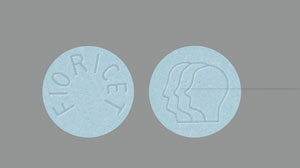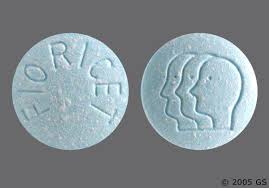
Preventing Misuse or Abuse of Butalbital
- 0
Preventing Misuse or Abuse of Butalbital
-
- Use painkillers, such as those containing butalbital, only as directed.
- Do not take butalbital unless you have a prescription.
- Store it in a secure place.
- Dispose of it properly.
Fioricet is a combination prescription medication used to treat migraines and tension headaches. Keep the following key points in mind regarding Fioricet:
-
- Fioricet includes butalbital, acetaminophen and caffeine
- Fioricet is a controlled substance and should be taken exactly as prescribed
- As a depressant, Fioricet can have side effects like feeling sluggish or drowsiness as the body adjusts to the medication. In rare cases, side effects can be more severe.
- Fioricet can interact with other drugs and health conditions and you should speak to a doctor if you are taking other medications, have any other health conditions or are pregnant
- Fioricet has some addictive qualities
- Misusing Fioricet can be dangerous or deadly

BCC are effective at providing acute relief from tension headaches that are resistant to other treatments. However, their narrow therapeutic index and addiction potential can be clinically troublesome. Patients that take BCC for headaches, especially those with comorbid psychiatric illnesses, are at increased risk of developing dependence and tolerance to these agents, which can lead to a life-threatening withdrawal syndrome if stopped abruptly.
Barbiturate withdrawal can be potentially missed or misdiagnosed, especially in patients taking other medications such as benzodiazepines, which can lead to a similar withdrawal syndrome. New-onset seizures, psychotic symptoms, and autonomic changes should raise concern for barbiturate withdrawal in patients with chronic headaches; the lack of initial response to conventional treatments for benzodiazepines or ethanol withdrawal should prompt reconsideration of the diagnosis and possible initiation of treatment for barbiturate withdrawal.
Medication reconciliations, including cross-referencing prescription databases, are an essential portion of patient history taking. Furthermore, clinicians should be aware that a negative urine toxicology screen for barbiturates may herald imminent withdrawal. Facilities should develop protocols detailing appropriate monitoring and treatment for suspected barbiturate withdrawal. Additionally, protocols should be developed to safely wean patients off these agents.
This case underscores that patients prescribed with BCC should be monitored closely as outpatients and the minimum effective dose necessary to avoid the potential for significant dependence or withdrawal should be prescribed. If headaches are more frequent than a few days per month or there is a history of substance abuse, a referral to a neurologist is recommended to determine an appropriate headache management strategy to avoid daily use of barbiturates. Additional substance use treatment and referral to a psychiatrist should also be considered if there are concerns for misuse.